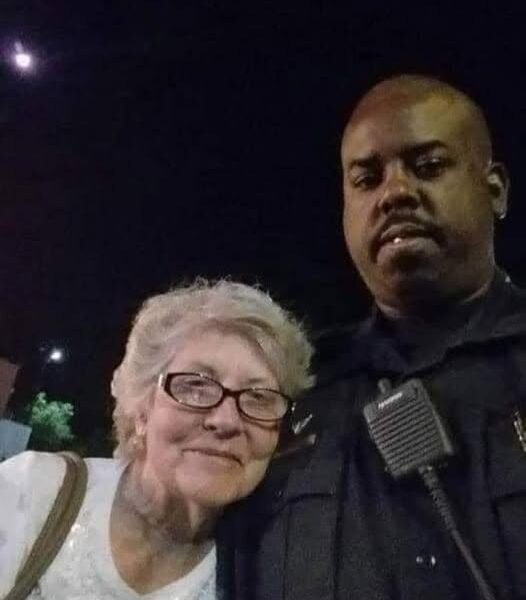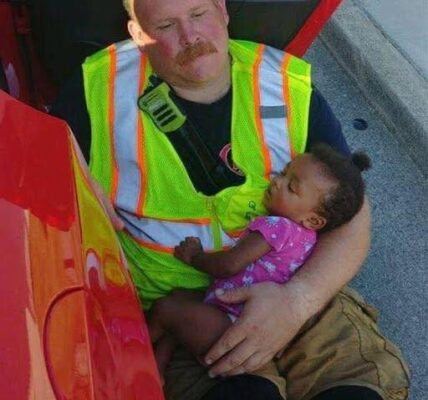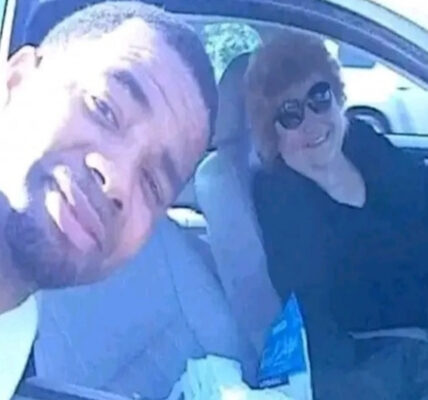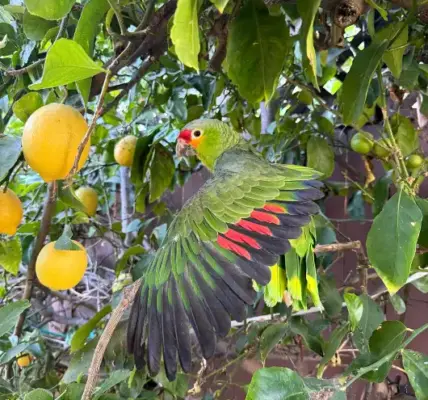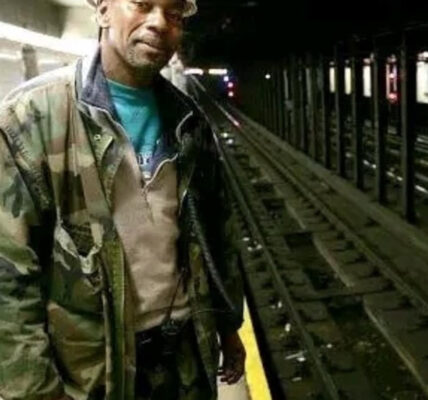
Tonight, as I was driving around looking for something to eat, I noticed her—a lone figure behind the wheel, slowly making her way along I‑10 toward Florida. At first, I thought it was just ordinary driving fatigue, something that happens when you’ve been on the road for hours. But then I noticed the subtle swaying. Her car drifted slightly to one side, then corrected, then drifted again. It was almost imperceptible, but the danger was there. At one point, she came frighteningly close to sideswiping a massive truck. The driver honked sharply, and she flinched, correcting herself—but my stomach dropped. She was struggling. She needed help, and I couldn’t just drive past.
I pulled her over carefully, parking a safe distance behind her. As I approached, I saw a frail, elderly woman, her hands gripping the wheel tightly, eyes alert yet weary. There was something in her expression—a mix of determination and vulnerability—that told me she had been driving far longer than she should have.
“Good evening, ma’am,” I said gently. “Are you okay?”
She looked at me, a small smile playing on her lips. “I’m fine,” she said. “Just trying to get to Pensacola.”
“Where are you coming from?” I asked.
“San Antonio,” she replied without hesitation. There was pride in her voice, a stubborn confidence. She insisted she could make the rest of the trip on her own. But I could see the strain in the lines on her face, the fatigue in her posture. My gut told me she wasn’t as fine as she claimed.
I asked the question I hoped would cut through the stubbornness: “When was the last time you ate?”
She paused, and her voice fell to a whisper: “Around lunchtime.” Hours had passed. Hunger and fatigue on a high-speed interstate are a dangerous combination, even for the most experienced drivers. I explained carefully, not to lecture, but out of concern, that I didn’t think she could safely make it to Pensacola in her current condition. She listened quietly, nodding, though there was a trace of sadness in her eyes.
Then I offered an idea: “There’s a Waffle House just a few minutes from here. Why don’t we stop there? You can get something to eat, rest a bit, and continue when you’re feeling better.”
She hesitated for only a moment before agreeing. We drove together the short distance, the car quiet except for the hum of the engine. When we arrived, I parked and watched from a distance, wanting to make sure she was safe. She walked inside carefully, carrying the weight of exhaustion in her steps.
I could see her settling at a booth, and for the first time, she seemed to exhale. She ordered her food, and I realized how long it had been since she had felt cared for. The minutes stretched on slowly, but they were minutes that mattered. Minutes where she could nourish herself, regain strength, and remember that someone had noticed she needed help.
When she emerged, she looked lighter somehow, more composed, more herself. She reached for her purse and offered me money. I shook my head, smiling gently. “I can’t accept that—it’s part of my job to protect and serve,” I said.
Her eyes softened, glistening with something like gratitude and relief. Then, almost shyly, she asked, “Would you accept a hug?”
I stepped forward without hesitation. That hug wasn’t just a simple gesture—it was a bridge between two strangers, a moment of connection that carried the weight of concern, compassion, and recognition. In that embrace, I felt her exhaustion, her fear, and also the relief of knowing that someone had stopped, noticed, and acted. It reminded me that heroism doesn’t always make headlines. Sometimes, it lives in quiet, human acts—attentiveness, care, a moment to pause and help.
As she drove away, now nourished and steadier at the wheel, a profound sense of fulfillment settled over me. The feeling wasn’t about recognition or praise. It was about the knowledge that I had made a difference, however small, in someone’s life that night. A meal, a hug, a little attention—these are tiny acts, but they can transform fear into safety, isolation into connection, exhaustion into energy.
I still love this job. Not for glory, not for awards, but because it allows me to witness the quiet miracles of kindness and humanity. The world often seems harsh, rushed, indifferent—but moments like these remind me why it matters to look out for one another. It’s not always dramatic. It doesn’t need to be. Sometimes, all it takes is awareness, empathy, and the courage to act.
Tonight, an elderly woman made it safely to her destination, and I was privileged to be a small part of that journey. And as I drove away, I thought: if each of us paused to notice someone struggling, to offer help, a meal, or even just a hug, the world would be immeasurably brighter, safer, and more human.
In the end, that night wasn’t about me, or about authority, or about duty. It was about humanity—the quiet, everyday heroism that exists when one person chooses to see, to care, and to act. And it is moments like this that make me grateful to be able to witness, and participate in, the simple miracles of kindness that keep this world turning.
